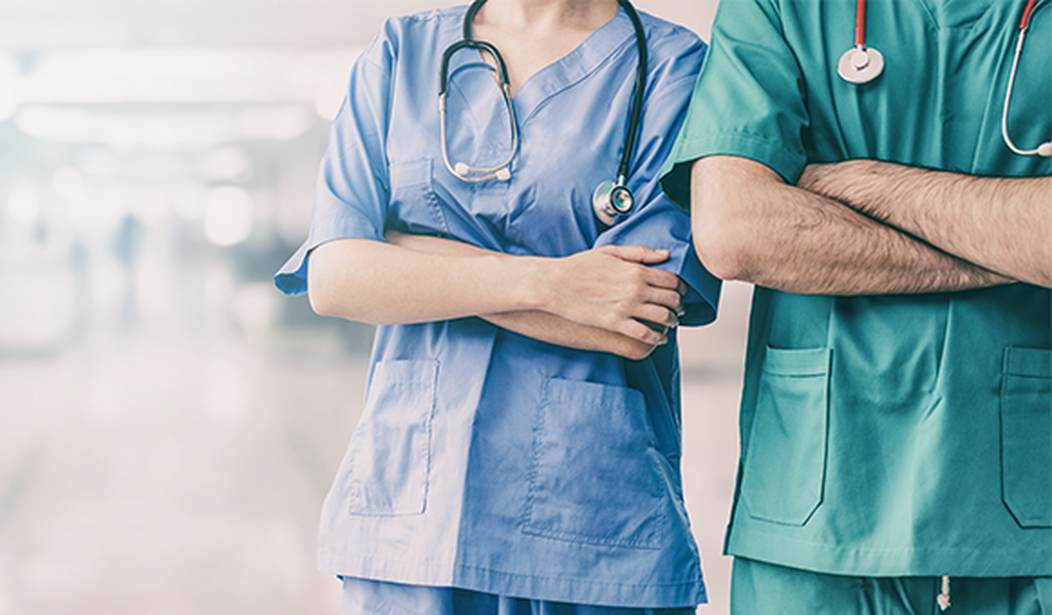Optimism has begun to make its way into daily conversations amid health experts as hospitalizations and deaths resulting from the Wuhan Coronavirus have begun to level out and even shrink in many places. But another concerning statistic has medical professionals concerned that the health of many Americans not infected with COVID-19 could be in jeopardy.
Doctors in many parts of the United States have reported 40-60 percent drops in admissions for heart attacks and strokes, one cardiologist wrote in the New York Times. Although many doctors and nurses are busy with a spike in COVID-19 cases, Dr. Harlan M. Krumholz also wrote, many hospitals are more empty than normal.
"Our hospital is usually so full that patients wait in gurneys along the walls of the emergency department for a bed to become available on the general wards or even in the intensive care unit," said Dr. Krumholz. "We send people home from the hospital as soon as possible so we can free up beds for those who are waiting. But the pandemic has caused a previously unimaginable shift in the demand for hospital services."
Dr. Krumholz, the director of the Yale New Haven Hospital Center for Outcomes Research and Evaluation, noted that the lack of hospitalizations is likely not due to canceling elective procedures or shifting to telemedicine, as some have asserted.
"Some of the excess capacity is indeed by design. We canceled elective procedures, though many of those patients never needed hospitalization," Dr. Krumholz said. "We are now providing care at home through telemedicine, but those services are for stable outpatients, not for those who are acutely ill."
The primary concern among Dr. Krumholz and his medical peers is that heart attack and stroke sufferers are forgoing urgently needed medical care in order to strictly adhere to social distancing guidelines and avoid crowded ERs. Those with other medical complaints, such as kidney and abdominal pain, have also thought twice about venturing to a hospital which is thought to be overrun with infectious patients who could put them at greater risk.
Recommended
"This theory suggests that COVID-19 has instilled fear of face-to-face medical care," Dr. Krumholz wrote. "As a result, many people with urgent health problems may be opting to remain at home rather than call for help. And when they do finally seek medical attention, it is often only after their condition has worsened."
Reports of at-home deaths in New York City have also spiked in recent days, leading some to suspect that cases of the Wuhan Coronavirus could be underreported. City officials say, however, that deaths at home suspected to be at least partially caused by COVID-19 infection are being counted in the official death toll. A spokeswoman for the NYC Medical Examiner's Office said that since the pandemic arrived in the city, at-home deaths have gone from an average of 20-25 per day to around 200 per day.
On Tuesday evening, White House Coronavirus Task Force response coordinator Dr. Deborah Birx stated that all people who died while infected with COVID-19 were being counted as a fatality of the illness, regardless of underlying medical conditions. Though not all deceased persons were tested for the novel virus, suspected cases were nonetheless reported.
"Every person with a lab confirmed COVID-19 diagnosis is counted in the number of fatalities,” Health Department spokesman Michael Lanza said. “While undiagnosed cases that result in at-home deaths are connected to a public health pandemic...not all suspected COVID-19 deaths are brought in for examination by OCME, nor do we provide testing in most of these natural at-home deaths."
Dr. Krumholz emphatically encouraged ill patients to seek medical care, regardless of COVID-19 infection status and fears about crowded hospitals.
"The public needs to know that hospitals are equipped not only to care for people with COVID-19 but also those who have other life-threatening health problems," he implored. "Yes, we in health care are working to keep people out of the hospital if we can, but we can safely provide care for those people who are not sick from COVID-19."

























Join the conversation as a VIP Member